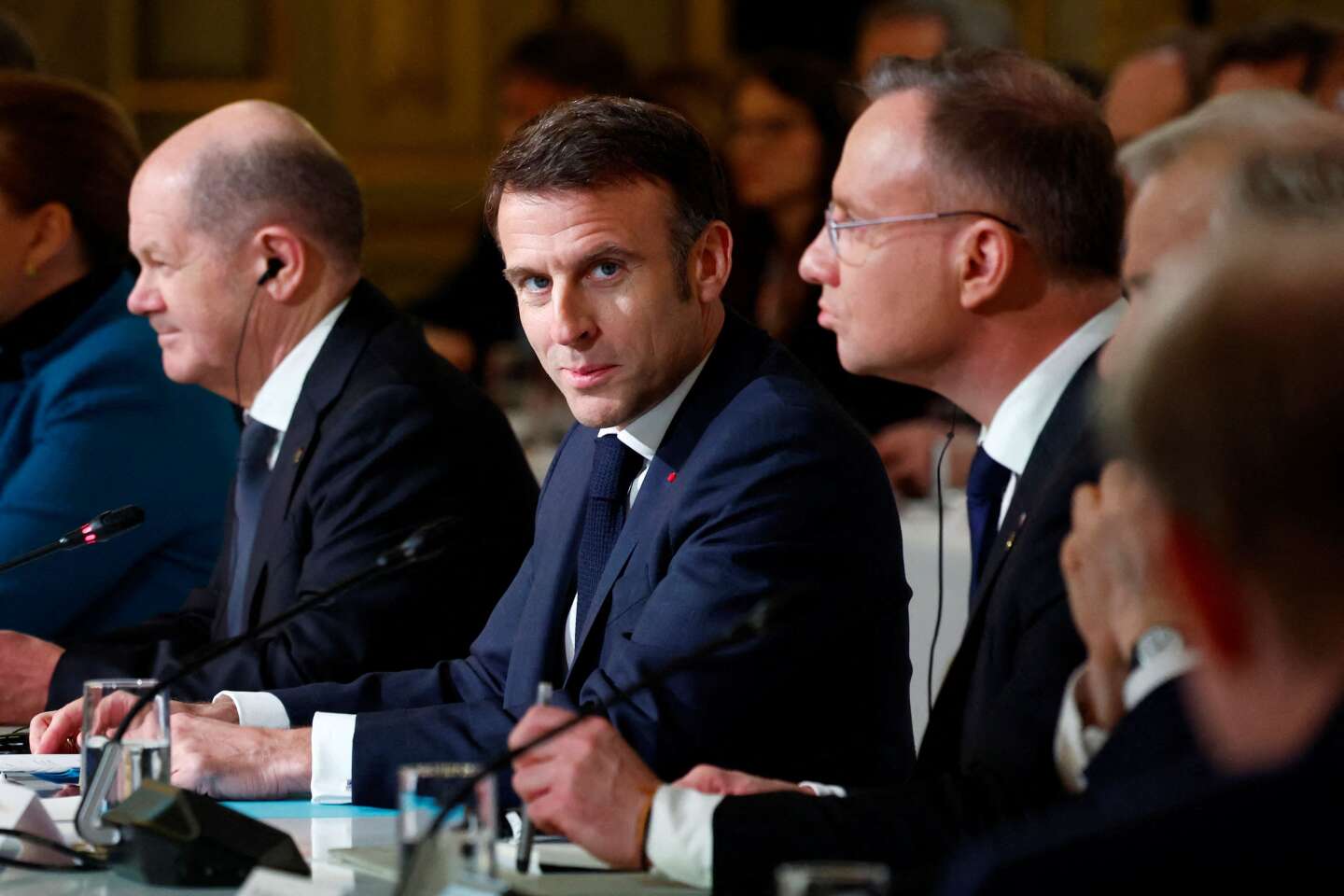

'Macron has made a specialty of being right or, more often than not, wrong, alone against the world'

After the outcry, a moment's respite in the majestic grounds of Prague Castle. The Czech president, Petr Pavel, gave Emmanuel Macron a rare public endorsement on Tuesday, March 5, following the shockwaves sent through the Western world by his comments on sending allied troops to Ukraine. "I am in favor of looking for new options, including a debate on a possible presence in Ukraine," judged Pavel, who was formerly the top military advisor of the North Atlantic Treaty Organization (NATO), standing by the French president, who was on an official visit to the Czech Republic that day. In passing, this pro-European general described the deployment of combat forces on the front lines against Russian forces as a "red line."
Nonetheless, 10 days after the president's comments saying he does not rule out sending military reinforcements to Ukraine, the question has divided Western diplomatic services: Was Macron wrong to precipitate the debate on a Western military presence in the country besieged by Russia? The French president certainly has a habit of making intemperate remarks, whether about NATO (which he deemed "brain-dead" in 2019), Russia (which was not to be "humiliated," three months after its invasion of neighboring Ukraine), or Taiwan (dissuading Europe, in April, from being "caught up in conflicts that are not ours"). He has made a specialty of being either right or, more often than not, wrong, in standing alone against the world.
This time, however, Macron has sought to prepare people's minds, having called for a "strategic surge" in support for Ukraine during his last meeting with Volodymyr Zelensky in Paris on February 16. In the meantime, the French president discussed the subject with US President Joe Biden and German Chancellor Olaf Scholz, before insisting on February 26 on the key issue – that of potential military presence – while speaking to around 20 of his counterparts, which he had gathered at the Elysée to do "more and better" in support of Kyiv. The debate that followed quickly showed that the initiative was in danger of running out of steam. Yet Macron nevertheless decided to raise the subject at his press conference, much to the surprise of his guests, most of whom – Scholz first of all – had already discreetly left the presidential palace.
Since then, only Ukraine and a few Baltic countries have openly welcomed the prospect of Western military reinforcements, just as the Russian army, better supplied with ammunition, is advancing in the Donbas. "Any form of help is welcome, be it financial, material or physical," said a Ukrainian diplomat. However, most NATO member states – led by the USA and Germany – have categorically rejected this approach. Both expressed concern to avoid escalation and open conflict with nuclear-armed Russia. "There's not going to be US troops on the ground in Ukraine. President Zelensky isn't asking for that, he's just asking for the tools and capabilities," said John Kirby, the US national security communications advisor, on Tuesday.
You have 47.98% of this article left to read. The rest is for subscribers only.
